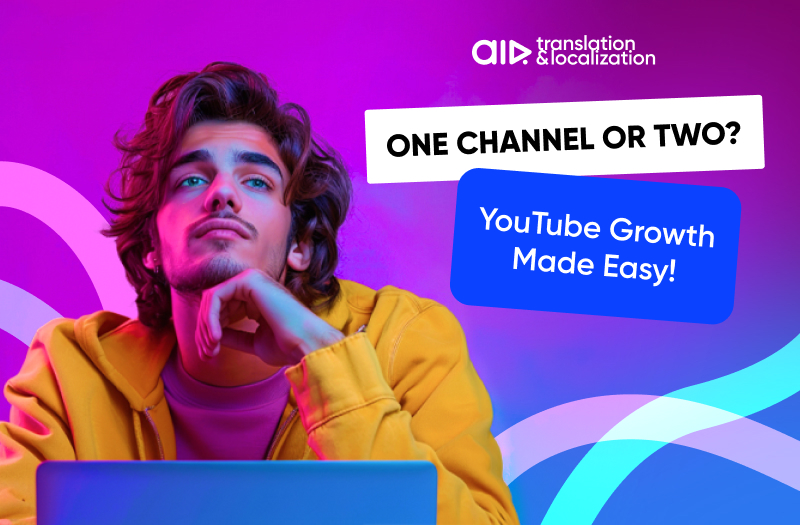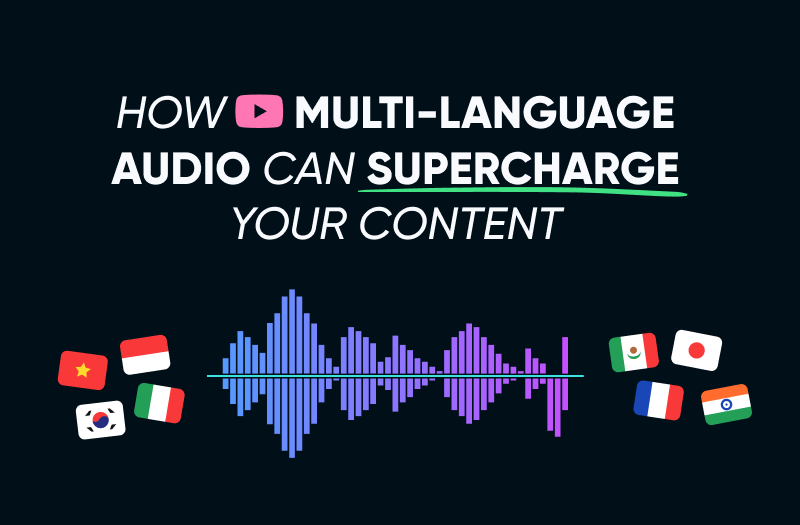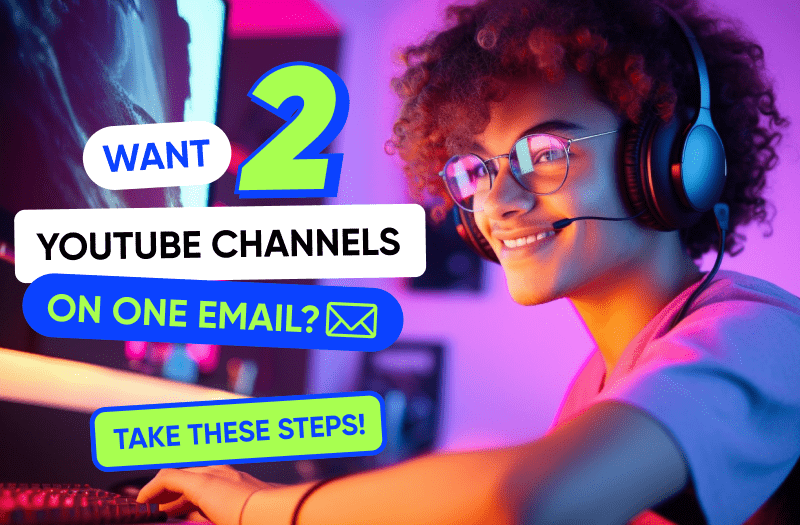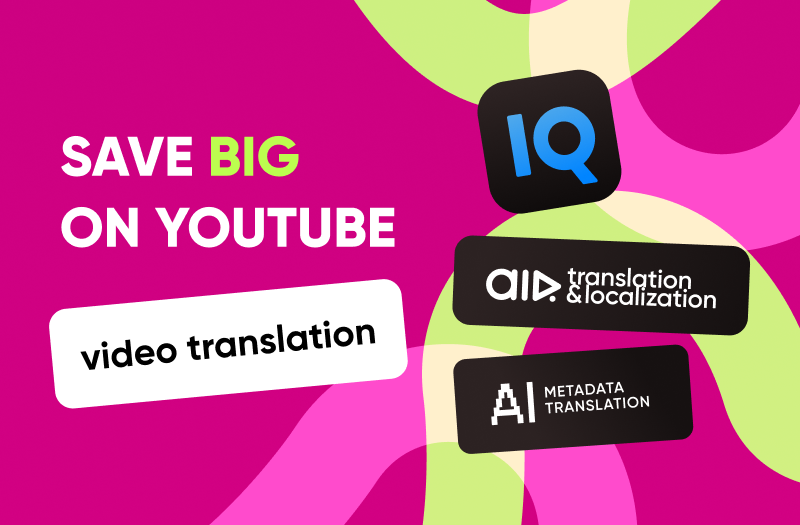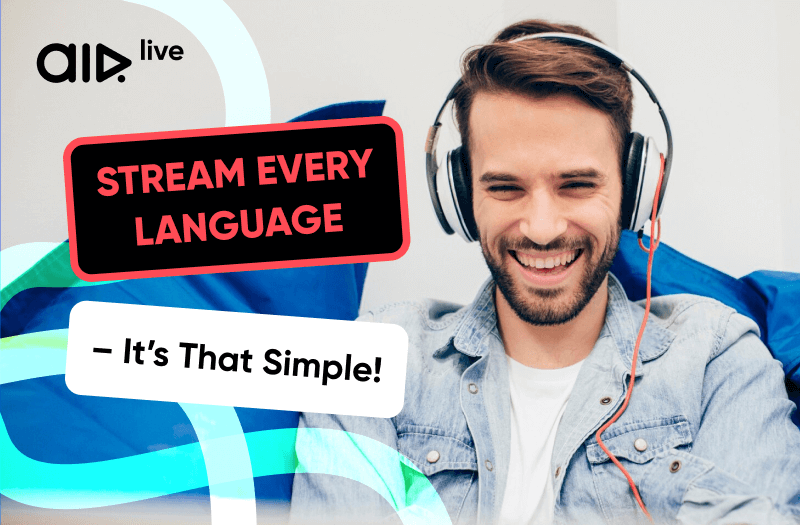Table of contents
01
Why Should You Create a YouTube Language-Specific Channels?
02
The Challenges of Multiple Channels
03
Subtitles vs. New Channels: What’s Better?
04
Case Study: Brave Wilderness and AIR Media-Tech
05
When to Stick to One Channel
06
One Channel Doesn’t Always Fit All
07
Thinking About Multiple Languages?
08
Choosing a Language to Translate
09
How to Reach a Global Audience on YouTube
10
How to Decide
Thinking about expanding your YouTube channel to reach a new audience in different languages? It’s an exciting opportunity, but one big dilemma always arises: Should you start a second channel or stick with just one?
Expanding your YouTube channel into new languages is a fantastic way to grow your audience with translation and localization, but it raises many questions. How will the YouTube algorithm react? Will subtitles be enough, or should you consider dubbing your content? These are just a few of the decisions creators make when considering going global. In this article, we’ll dive into these questions and help you figure out the best way to make your YouTube international.
Why Should You Create a YouTube Language-Specific Channels?
Starting a new YouTube channel for another language can make a lot of sense, especially if you’ve built a solid audience in one language and want to connect with a completely different linguistic group. But, it’s not without its challenges – like starting from scratch and managing two platforms. Here are some things to think about:
- Audience Segmentation
If your main channel is all English content, and now you want to start posting videos in Spanish. Your English-speaking viewers might be confused or even annoyed to see content they don’t understand in their feed. Having a separate channel keeps things organized so that each audience gets content in their preferred language.
- YouTube Algorithm
YouTube’s algorithm could also get confused if you mix languages on the same channel. If your regular audience skips your new language content, it could hurt your video recommendations, making it harder to grow. By separating your channels, you keep your algorithm performance strong and focused.
- Brand Clarity
Having a dedicated channel for each language lets you tailor your content to different regions, helping your brand feel more connected and relevant to each audience. It’s a great way to build trust and engagement with a second YouTube channel.
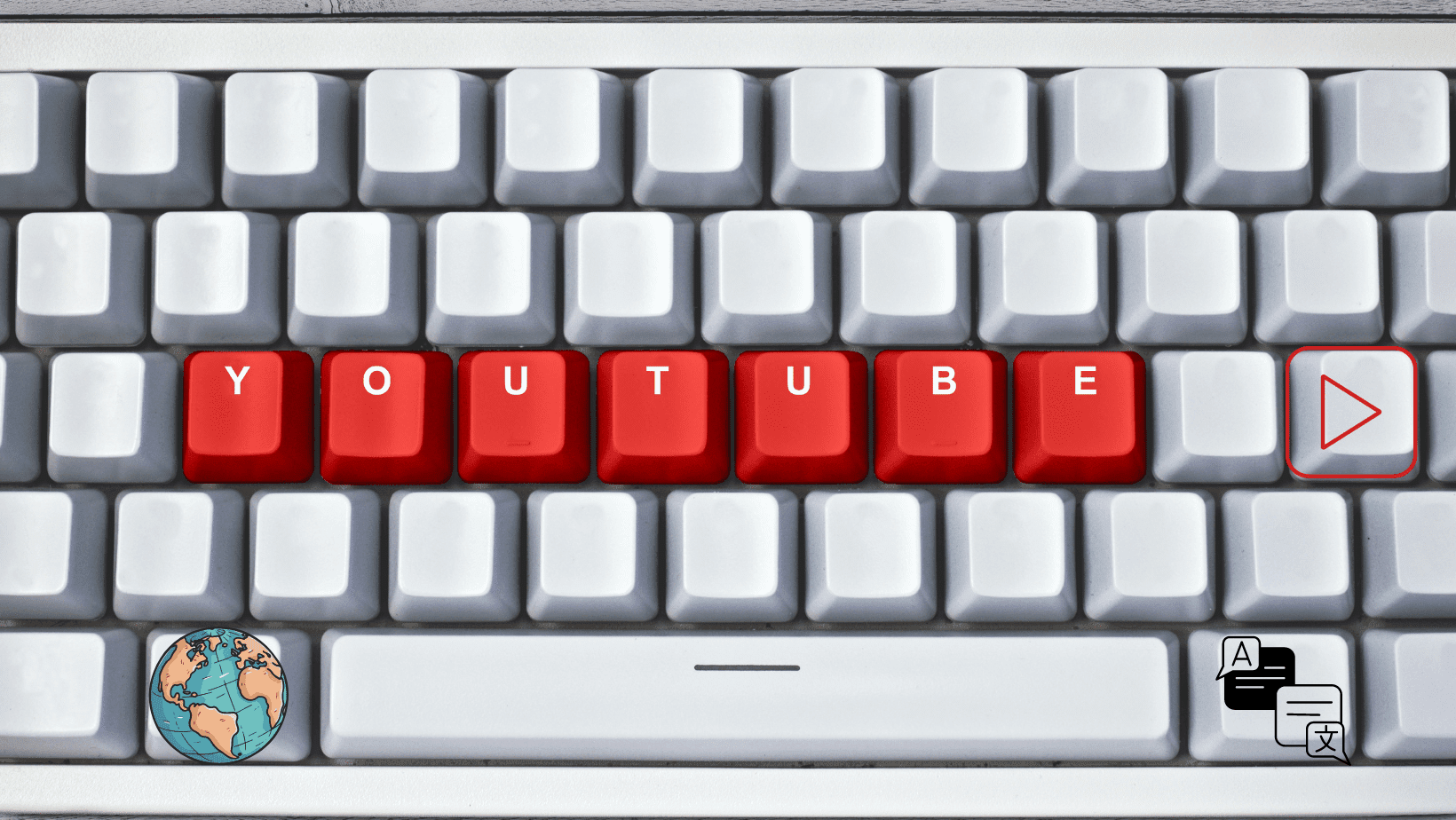
The Challenges of Multiple Channels
Of course, there are some downsides to running multiple channels. Here’s what you need to watch out for:
Double the Work
Running two channels means creating more content, monitoring analytics for both, and engaging with two separate audiences. This can get overwhelming if you’re a solo creator or have a small team.
Splitting Your Audience
You might also find that your audience becomes divided. Some fans will stick to your original language content, and others will go to the new channel, which could slow your growth overall with a new channel audience.
Subtitles vs. New Channels: What’s Better?
You might wonder if it’s better to just add subtitles instead of creating a whole new channel. Subtitles are a quick fix and cost a lot less than producing new content. But they don’t always offer the best experience for multi-language video content.
Pros of subtitles for your videos
- Cost-effective
You don’t need to create extra content, and YouTube’s subtitle tools make adding them to your videos easy.
- Global Reach
You can cater to a broader audience while keeping everything in one place.
Cons of subtitles
- User Experience
Some viewers simply don’t enjoy reading subtitles, especially for entertainment-focused content. Dubbing or creating new content in a native language often keeps viewers more engaged.
Dubbing and high-quality translations with video localization can be a more effective multilingual YouTube strategy for holding viewers’ attention, allowing them to focus on the content.
AIR Media-Tech specializes in helping creators expand their reach through effective video localization. Our service, AIR Translate, includes translation, dubbing, and tailored localization strategies to your needs. With hundreds of successful projects, we’re recognized by YouTube as a recommended vendor for content translation and localization.
Whether you’re looking to reach new audiences or boost engagement with your current content, AIR Media-Tech can help. Our expertise in video localization ensures your content resonates with viewers everywhere, driving growth and expanding your global presence.
Creators from YouTube’s Top 10 Translate with Us!
Let’s pick the best translation strategy for your channel!
Case Study: Brave Wilderness and AIR Media-Tech
A great example of successful YouTube video localization is the Brave Wilderness YouTube channel, which teamed up with AIR Media-Tech to reach a global audience. With over 21 million subscribers, Brave Wilderness has become a leader in wildlife content. Through our partnership, we’ve helped localize their videos into multiple languages, making them accessible to audiences worldwide. By creating localized channels with professional dubbing, translated subtitles, and tailored metadata, they’ve been able to connect with diverse audiences all around the world.
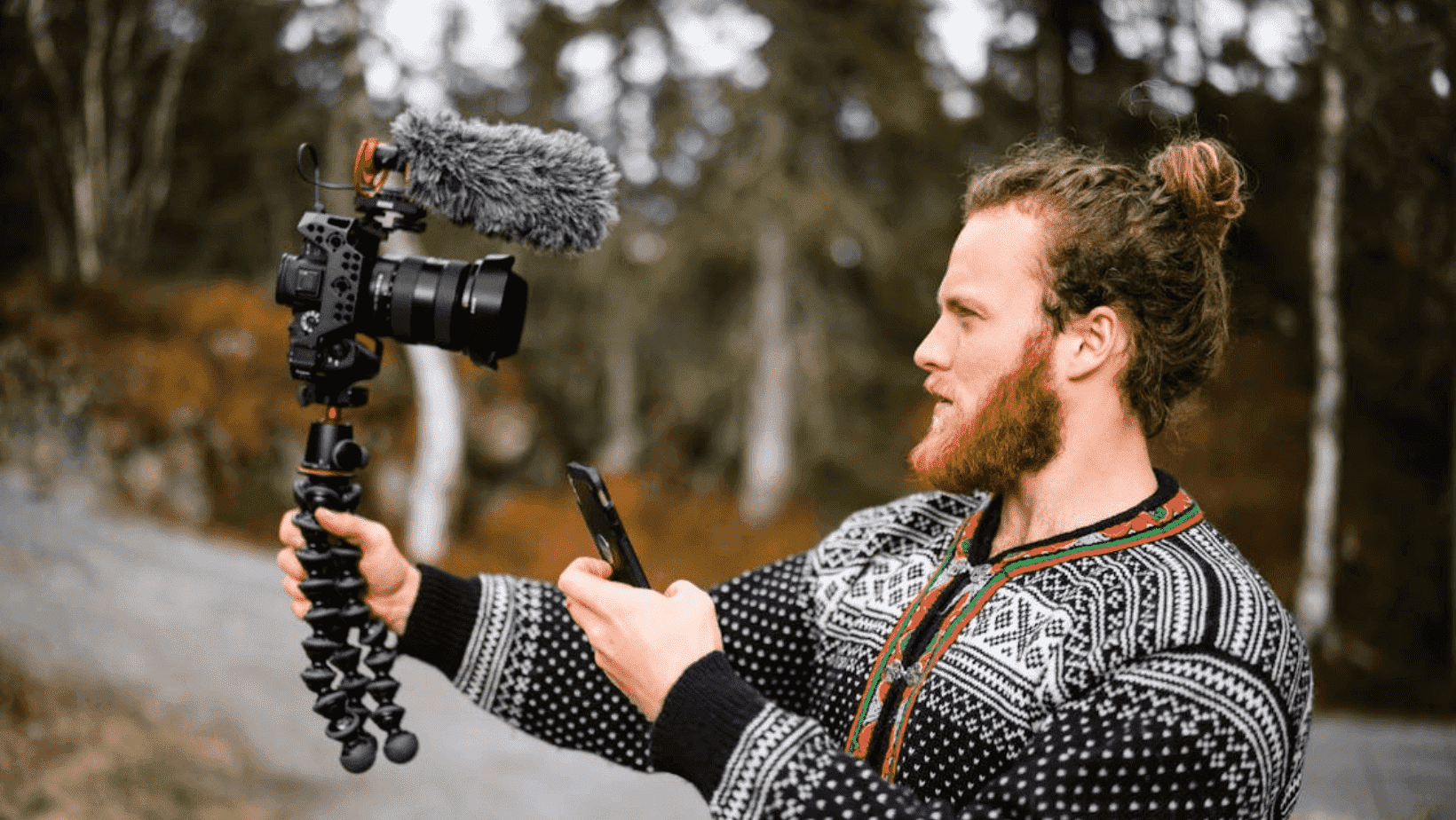
When to Stick to One Channel
For some creators, one channel with multilingual playlists might work better. If your content is less language-dependent, like tutorials or visually driven videos, adding subtitles or voiceovers could be all you need.
Benefits of One Channel
- Unified Growth
You’re growing one channel without dividing your efforts.
- Consistent Audience
All your content is available to all subscribers, regardless of their language.
Drawbacks of One Channel
- Mixed Engagement
Different languages on one channel can confuse viewers or lead to lower engagement.
- Viewer Confusion
Some might not like seeing content they can’t understand and could unsubscribe or interact less.
One Channel Doesn’t Always Fit All
Sometimes, creators feel that a new type of content is too different from what their current audience expects. In those cases, starting a second channel might be the smarter move. For example, if your main channel is focused on tech reviews, but you want to start posting comedy sketches, that's a completely different tone, different viewer expectations, and mixing them could hurt retention and recommendations.
That’s why many YouTubers create second channels:
- to explore different content formats (vlogs, gaming, reactions);
- to experiment with a looser, more casual style;
- to target a new language or audience without confusing their existing subscribers.
Thinking About Multiple Languages?
You can upload the same video in different languages on YouTube, either on separate channels or by using YouTube’s multi-language audio feature. But the best approach depends on your long-term strategy.
If you’re just testing demand in a new region, using auto-dubbing and translated metadata is a great start. But once you see traction in a specific language or country, it often makes sense to create a separate channel. That way, you can tailor everything (branding, community posts, even thumbnails) to that local audience and build a stronger connection.

Choosing a Language to Translate
Not all languages bring the same results. The right translation depends on your niche, goals, and where your audience lives. English might give you global reach, while Hindi or Spanish could unlock massive, underserved local audiences. Start with one language that aligns with your growth strategy and expand as you go.
Should You Translate Your Channel to English
English remains the most universal language on YouTube, giving your content access to a global audience. Even partial translation, like subtitles or dubbed versions, can dramatically increase your reach and CPM in markets like the U.S., U.K., and Canada.
Should You Translate Your Channel to Spanish
Spanish is the second most spoken language on YouTube. Translating your videos into Spanish opens doors to massive audiences in Latin America, Spain, and the U.S. Hispanic market. It's a powerful way to grow fast in emerging regions with high watch time and low competition.
Should You Translate Your Channel to Hindi
Hindi is one of the fastest-growing languages on YouTube, with a huge viewer base in India. Translating to Hindi can bring millions of views, especially on mobile, and tap into a market where localized content is strongly preferred.
Should You Translate Your Channel to Chinese
While YouTube is restricted in mainland China, Chinese-speaking audiences around the world, especially in Taiwan, Hong Kong, and the global diaspora, actively use the platform. Translating to Mandarin or Cantonese can help you stand out in niche markets with loyal, engaged viewers.
How to Reach a Global Audience on YouTube
As your channel grows internationally, it’s important to choose the right setup for multilingual content. You have three main strategies: one multilingual channel, separate channels by language, or a global hub supported by local channels.
1. One Channel, Multiple Languages
Upload content in different languages to one channel.
Pros:
– Easy to manage
– Unified branding
– All views and subs in one place
Cons:
– Mixed-language comments and updates may confuse viewers
– Harder to personalize content
Tips: Use subtitles, group videos by language using playlists, and make your channel layout easy to navigate.
2. Separate Channels by Language
Create a dedicated channel for each language or region.
Pros:
– Tailored content for each audience
– Easier to run local promotions
– More relevant viewer experience
Cons:
– More channels to manage
– Requires more resources
Tips: Clearly label channels, cross-promote them, and feature them on each other’s pages.
3. One Global Channel + Local Support Channels
Use a main channel for global content and add local channels for specific regions.
Pros:
– Flexibility for both global and local campaigns
– Better viewer targeting
– Clear content structure
Cons:
– Requires coordination between teams
– Most resource-heavy setup
Tips: Keep metadata and branding consistent. Drive traffic from global to local channels using links and featured content.
No matter the model, use subtitles, translated metadata, or professional dubbing to increase reach.
AIR Media-Tech is recognized by YouTube as a recommended vendor for content translation and localization. We’ve helped creators gain millions of new subscribers in other languages, and we can help you too. Contact us today!
How to Decide
Before you make the call, consider:
- Audience Size
Do you already have a strong following in one language? If so, maybe it’s worth starting a new channel.
- Content-Type
Is your content language-heavy, like vlogs or interviews? If so, you might need separate channels. If it’s more visual, subtitles might work.
- Resources
Do you have the time and energy to run two channels? If not, focus on growing one first.
- Monetization
Multiple channels can help you better target ads and earn more, but managing both effectively is key.
There’s no right or wrong answer – it all depends on your content, audience, and resources. If you’re ready to manage two channels, go for it! But if subtitles and playlists make more sense for your content, stick with one.
Either way, having professional YouTube content localization and translation is essential to connecting with your audience. AIR Media-Tech guides you through the process, ensuring your content reaches new heights across languages and borders. We’ll guide you on the best languages to boost your audience and engagement and support you with localization every step of the way. Don’t hesitate to get in touch with us!
